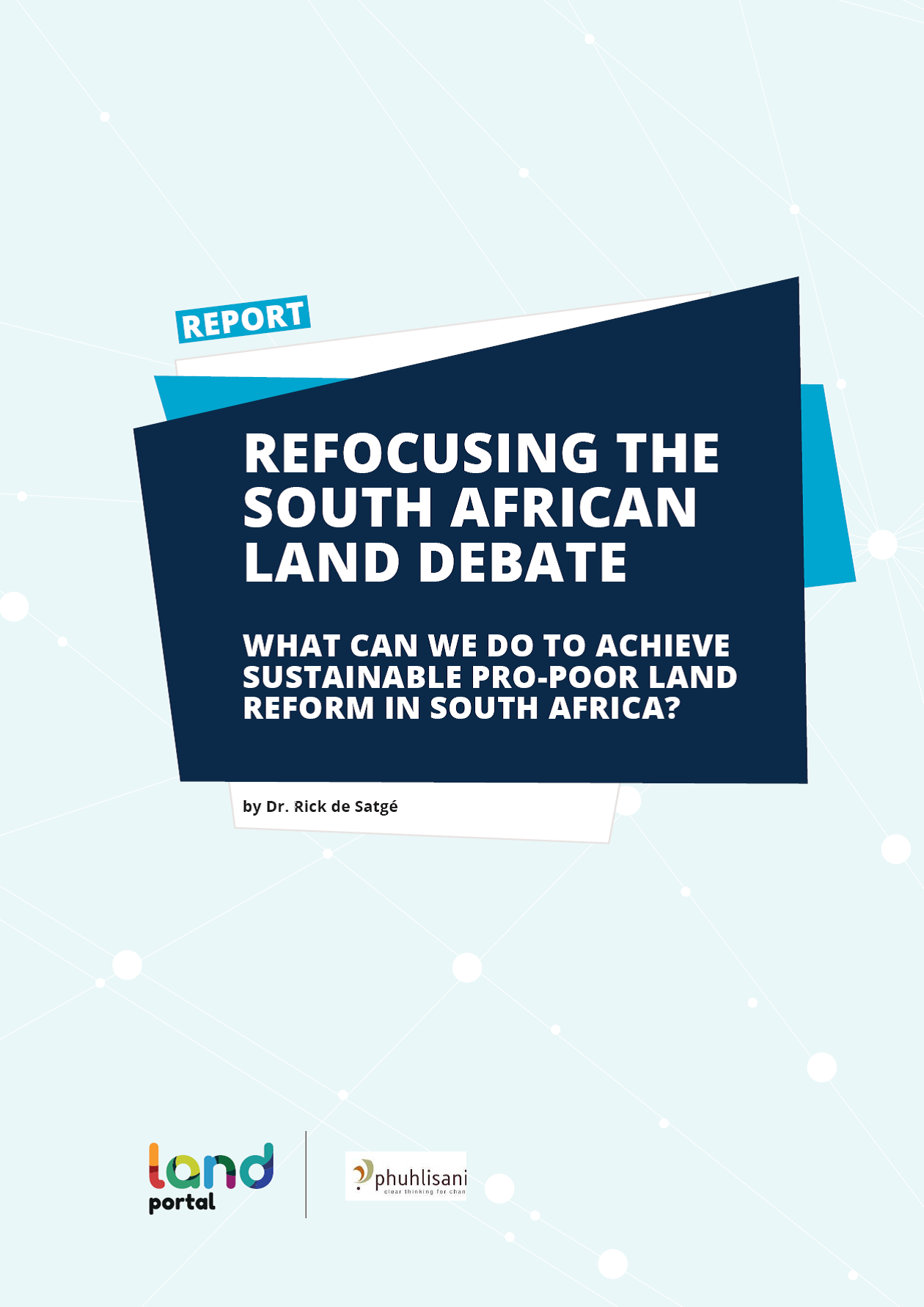Focal point
Location
Mowbray
Cape Town
Phuhlisani began as a consultancy started by a group of people who wanted to support emerging farmers who obtained access to land through land reform programmes in South Africa. In 2015, after 12 years in operation as a Closed Corporation, the members of the company decided to convert Phuhlisani to a Non-Profit Company which took place in October 2015.
Phuhlisani NPC provides comprehensive services and support for sustainable land reform and rural development including:
- Research and strategy development at national, provincial district and local scales.
-
Providing development facilitation and conflict resolution services in complex and contested development settings.
-
Providing individual project planning and implementation support.
-
Supporting rights determination, strengthening land holding institutions and helping develop functional land rights management systems.
-
Developing and strengthening associations representing people acquiring land through the land reform programme.
-
Designing comprehensive capacity development strategies and materials.
-
Facilitating learning process approaches within institutions and across development programmes.
-
Market scoping, agricultural enterprise development and joint venture formation.
Phuhlisani has adopted a trans-disciplinary approach to its work. This involves breaking down the boundaries between so called hard and soft skills, specialist and local knowledge.
The organization believes that this helps to identify solutions which are socially, economically and ecologically sustainable in a context where land and agrarian reform, the promotion of sustainable livelihoods and pro poor rural development take place within an increasingly complex and contested national and international environment.
Members:
Resources
Displaying 1 - 5 of 34South African land news #March 2020
Every day since Pres Ramaphosa was elected into office we have searched out South African land-related news which is curated on our website knowledgebase.land. This publication provides a brief summary of land news across a range of categories for March 2020
Refocusing the South African Land Debate
This moderated online dialogue was facilitated by Phuhlisani NPC in association with the Land Portal. Phuhlisani NPC has drafted this report on the key issues surfaced through the dialogue.
Dialogue objectives
The dialogue provided an online forum to explore different perspectives on the content of a pro-poor programme of land reform programme that can:
The role of land tenure and governance in reproducing and transforming spatial inequality
Various multilateral organisations, for instance the World Bank, the Food and Agricultural Organisation have been at the forefront of the different programmes designed to enhance tenure security of landholders as the basis for long-term agricultural development. This has been the case especially in parts of the world where customary systems of tenure are predominant. Wily argues that ‘so little of sub-Saharan Africa is subject to formal entitlements as legally recognised private properties’.
The role of land tenure and governance in reproducing and transforming spatial inequality
This review critically examines the evolution of laws, policies and practices across colonial, apartheid and contemporary eras to identify the associated processes and patterns of uneven development and their contribution to the structural poverty and systemic inequality and the ways in which these are manifested in space and place. The primary focus is on the effectiveness of policies and laws shaping land tenure and governance in the democratic era and the extent to which they have been able to engage with these spatially differentiated legacies in order to promote spatial justice.
Tenure security of farm workers and dwellers
The report provides a brief history of farm labour in South Africa tracing its roots in slavery and colonial dispossession through to the emergence of state supported commercial agriculture and the subsequent deregulation of the agricultural sector. This is with a view to contextualising the examination of tenure security and identifying the impacts on people living and working on land owned by others. The report provides a scan of the legal reforms and measures instituted in the first decade of democracy in order to reverse the injustices of the past.



